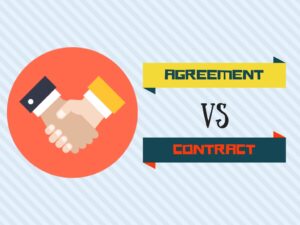What is hire purchase?
Hire purchase is a financial agreement where a customer pays for goods in installments, while using the goods during the payment period. The ownership of the goods is transferred to the customer after the final payment is made. It is commonly used for purchasing vehicles, machinery, and appliances.
Examples of hire purchase:
1. Buying a car by paying monthly installments over a fixed period of time.
2. Acquiring a piece of equipment for a business by making regular payments.
What is personal contract purchase?
Personal contract purchase (PCP) is a type of vehicle financing that allows individuals to pay for a car in monthly installments for a fixed period. At the end of the contract, they have the option to return the vehicle, make a final payment (balloon payment) to own it, or trade it in for a new model.
Examples of personal contract purchase:
1. Leasing a car for a fixed term and then returning it to the dealership.
2. Making lower monthly payments for a new car and deciding whether to keep or return it at the end of the agreement.
Differences between hire purchase and personal contract purchase:
| Difference Area | Hire Purchase | Personal Contract Purchase |
|---|---|---|
| Ownership | The customer becomes the owner of the goods after the final payment. | The finance company owns the vehicle throughout the agreement, and the customer has three options at the end. |
| Return option | There is no option to return the goods without penalties. | The customer can return the vehicle at the end of the agreement without penalties if they don’t wish to keep it. |
| End of agreement | The agreement ends when the final payment is made and the customer becomes the owner. | The customer has choices at the end, including making a final payment, returning the vehicle, or trading it in for a new one. |
| Monthly payments | The monthly payments are typically higher compared to PCP. | The monthly payments are typically lower compared to hire purchase. |
| Depreciation risk | The customer bears the risk of depreciation during the ownership. | The finance company bears the risk of depreciation during the ownership. |
| Flexibility | There is less flexibility in terms of modifying the agreement during the payment period. | The agreement allows for flexibility, such as modifying the annual mileage or extending the payment term. |
| Obligation to purchase | There is an obligation to purchase the goods once the agreement is signed. | There is no obligation to purchase the vehicle at the end of the agreement. |
| Ownership transfer | The ownership of the goods is transferred after the final payment. | The ownership of the vehicle is transferred only if the final payment is made. |
| Balloon payment | There is no balloon payment required at the end of the agreement. | A balloon payment may be required to own the vehicle at the end of the agreement. |
| Tax benefits | The customer is eligible for tax benefits, such as claiming applicable tax deductions and depreciation. | The finance company may be eligible for tax benefits, but the customer does not directly benefit. |
Conclusion:
In summary, hire purchase entails the ownership of goods after the final payment, while personal contract purchase offers options at the end of the agreement period. Hire purchase requires higher monthly payments and bears the risk of depreciation, whereas personal contract purchase allows for lower monthly payments, flexibility, and the possibility of returning the vehicle without penalties.
Knowledge Check:
1. Who becomes the owner of the goods once the final payment is made in hire purchase?
a) The finance company
b) The customer
c) The goods are returned
Answer: b) The customer
2. What are the options at the end of a personal contract purchase agreement?
a) Return the vehicle
b) Make a final payment
c) Trade it in for a new model
d) All of the above
Answer: d) All of the above
3. Which financing option bears the risk of depreciation during ownership?
a) Hire purchase
b) Personal contract purchase
c) Both options bear the risk
Answer: a) Hire purchase
4. Which financing option offers more flexibility to modify the agreement?
a) Hire purchase
b) Personal contract purchase
c) Both options offer equal flexibility
Answer: b) Personal contract purchase
5. Do customers have an obligation to purchase the goods in hire purchase?
a) Yes
b) No
Answer: a) Yes
6. Who is eligible for tax benefits in personal contract purchase?
a) The customer
b) The finance company
c) Both the customer and the finance company
Answer: b) The finance company
7. Which financing option requires a balloon payment to own the vehicle?
a) Hire purchase
b) Personal contract purchase
c) Both options require a balloon payment
Answer: b) Personal contract purchase
8. Are the monthly payments typically higher in hire purchase or personal contract purchase?
a) Hire purchase
b) Personal contract purchase
Answer: a) Hire purchase
9. Can customers return the goods in hire purchase without penalties?
a) Yes
b) No
Answer: b) No
10. When can the ownership of the vehicle be transferred in personal contract purchase?
a) After the final payment
b) Throughout the agreement
c) The ownership is not transferred
Answer: a) After the final payment
Related Topics:
Pros and Cons of Hire Purchase vs. Personal Contract Purchase
Factors to Consider When Choosing Between Hire Purchase and PCP


